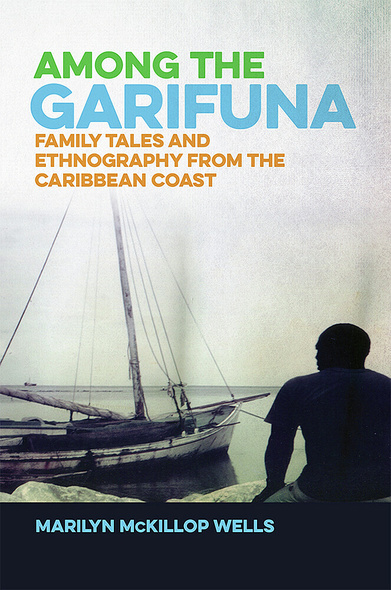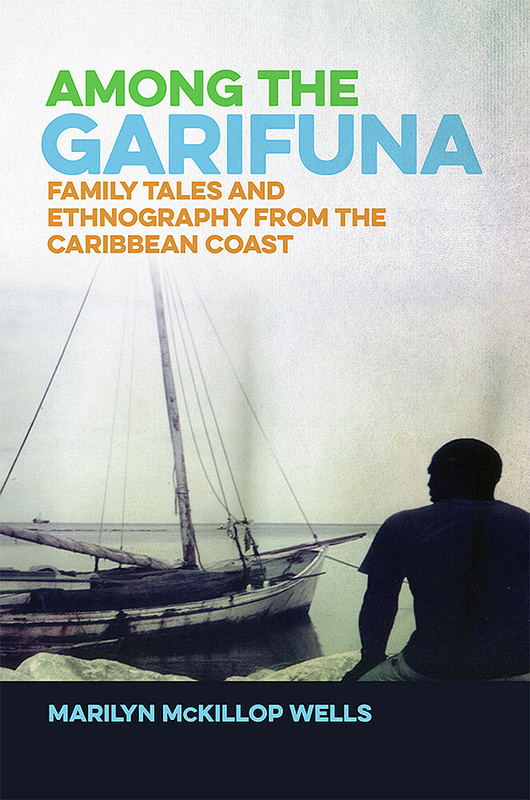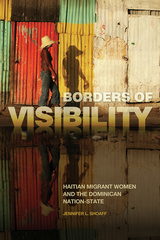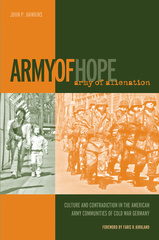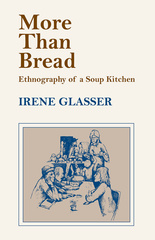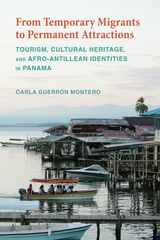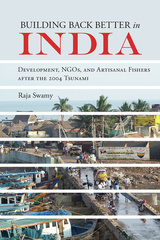Among the Garifuna
Family Tales and Ethnography from the Caribbean Coast
University of Alabama Press
An intimate ethnographic narrative of one indigenous family in the twentieth-century Caribbean
Among the Garifuna is the first ethnographic narrative of a Garifuna family. The Garifuna are descendants of the “Black Carib,” whom the British deposited on Roatan Island in 1797 and who settled along the Caribbean coast from Belize City to Nicaragua.
In 1980, medical anthropologist Marilyn McKillop Wells found herself embarking on an “improbable journey” when she was invited to the area to do fieldwork with the added challenge of revealing the “real” Garifuna. Upon her arrival on the island, Wells was warmly embraced by a local family, the Diegos, and set to work recording life events and indigenous perspectives on polygyny, Afro-indigenous identity, ancestor-worshiping religion, and more. The result, as represented in Among the Garifuna, is a lovingly intimate, earthy human drama.
The family narrative is organized chronologically. Part I, “The Old Ways,” consists of vignettes that introduce the family backstory with dialogue as imagined by Wells based on the family history she was told. We meet the family progenitors, Margaret and Cervantes Diego, during their courtship, experience Margaret’s pain as Cervantes takes a second wife, witness the death of Cervantes and ensuing mourning rituals, follow the return of Margaret and the children to their previous home in British Honduras, and observe the emergence of the children’s personalities.
In Part II, “Living There,” Wells continues the story when she arrives in Belize and meets the Diego children, including the major protagonist, Tas. In Tas’s household Wells learns about foods and manners and watches family squabbles and reconciliations. In these mini-stories, Wells interweaves cultural information on the Garifuna people with first-person narrative and transcription of their words, assembling these into an enthralling slice of life. Part III, “The Ancestor Party,” takes the reader through a fascinating postmortem ritual that is enacted to facilitate the journey of the spirits of the honored ancestors to the supreme supernatural.
Among the Garifuna contributes to the literary genres of narrative anthropology and feminist ethnography in the tradition of Zora Neal Hurston and other women writing culture in a personal way. Wells’s portrait of this Garifuna family will be of interest to anthropologists, Caribbeanists, Latin Americanists, students, and general readers alike.
Among the Garifuna is the first ethnographic narrative of a Garifuna family. The Garifuna are descendants of the “Black Carib,” whom the British deposited on Roatan Island in 1797 and who settled along the Caribbean coast from Belize City to Nicaragua.
In 1980, medical anthropologist Marilyn McKillop Wells found herself embarking on an “improbable journey” when she was invited to the area to do fieldwork with the added challenge of revealing the “real” Garifuna. Upon her arrival on the island, Wells was warmly embraced by a local family, the Diegos, and set to work recording life events and indigenous perspectives on polygyny, Afro-indigenous identity, ancestor-worshiping religion, and more. The result, as represented in Among the Garifuna, is a lovingly intimate, earthy human drama.
The family narrative is organized chronologically. Part I, “The Old Ways,” consists of vignettes that introduce the family backstory with dialogue as imagined by Wells based on the family history she was told. We meet the family progenitors, Margaret and Cervantes Diego, during their courtship, experience Margaret’s pain as Cervantes takes a second wife, witness the death of Cervantes and ensuing mourning rituals, follow the return of Margaret and the children to their previous home in British Honduras, and observe the emergence of the children’s personalities.
In Part II, “Living There,” Wells continues the story when she arrives in Belize and meets the Diego children, including the major protagonist, Tas. In Tas’s household Wells learns about foods and manners and watches family squabbles and reconciliations. In these mini-stories, Wells interweaves cultural information on the Garifuna people with first-person narrative and transcription of their words, assembling these into an enthralling slice of life. Part III, “The Ancestor Party,” takes the reader through a fascinating postmortem ritual that is enacted to facilitate the journey of the spirits of the honored ancestors to the supreme supernatural.
Among the Garifuna contributes to the literary genres of narrative anthropology and feminist ethnography in the tradition of Zora Neal Hurston and other women writing culture in a personal way. Wells’s portrait of this Garifuna family will be of interest to anthropologists, Caribbeanists, Latin Americanists, students, and general readers alike.
. . . this book, taken with many other books about the Garifuna, can contribute to a richer understanding of Garifuna life. Anyone interested in the African diaspora, blacks in Latin America, and indigenous religions should read this book.’
—Native American and Indigenous Studies
‘ . . .this ethnography does what every good, ‘classic’ ethnography should do—report on the social life and culture of a group of people—and it does this in such a compelling way that is almost goes beyond ethography into storytelling. The storytelling not only makes it accessible for a wider public, it also demonstrates the immersive nature of ethnographic work, and how we are all essentially inhabited by our interactions with the important people around us.’
—Journal of Anthropological Research
Through a narrative voice that makes you forget you are not reading fiction, anthropologist Marilyn Wells brings to life Garifuna cultural beliefs and practices. Wells’s narration of the Diego family, a composite of people and places, covers a breadth of topics of traditional anthropological focus including social organization and the life course—birth, marriage, and death—livelihood and identity, and ancestral religious beliefs and ritual. Among the Garifuna is a remarkably unique contribution to Garifuna ethnography.’
—Keri Vacanti Brondo, author of Land Grab: Green Neoliberalism, Gender, and Garifuna Resistance in Honduras
‘Wells has written this book in a way that will delight the general reader. There’s no beginning or ending, only a now, an ethnographic present, a page of an ongoing life defined by family and friends, shared history, and persistent change.’
—Jon L. Gibson, author of Spirit Wind and coeditor of Signs of Power: The Rise of Cultural Complexity in the Southeast
Marilyn McKillop Wells is professor emerita of anthropology at Middle Tennessee State University. As a medical anthropologist, she conducted fieldwork in Central America, West Africa, East Africa, and Papua New Guinea.

